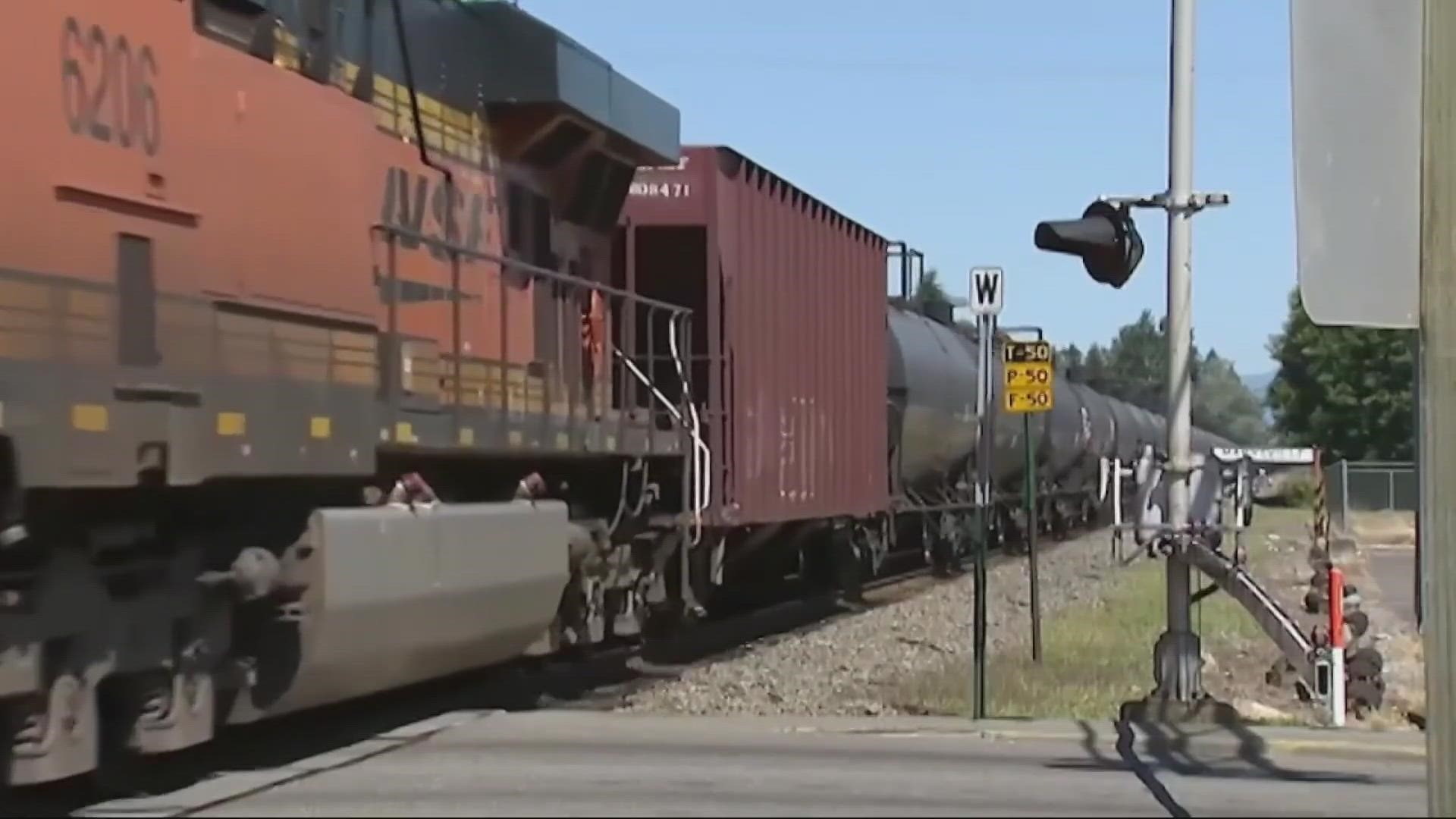JACKSONVILLE, Fla. — It happens to almost all of us at some point in Jacksonville.
Right when you think you've given yourself extra time and left early for a meeting, you get caught by a train at a railroad crossing.
It's such a regular occurrence that there's even a lighthearted Twitter account dedicated to the San Marco Train.
But how long can trains block traffic? It's already an inconvenience, but when is it illegal?
According to Jacksonville municipal code 734.104, "No railroad locomotive, car, train or other vehicle shall be operated to close or obstruct a street or crossing in the city for longer time than five minutes in a period of 15 minutes, except in cases of emergency."
There are different rules for different municipalities around the country. For a more thorough list of regulations in different states, visit this website.
This link provides goes into more detail about States’ regulatory authority over the length of time that a train may block a crossing and potential operational changes that railroads may make to address the issue.
In Jacksonville, a train that blocks traffic for more than five minutes is considered a Class-C offense, but only if it's stopped. If the train is moving in Jacksonville, much like the snarky responses from the San Marco Train Twitter account, it's allowed to keep going.
But that may change in the future.
Right now, the National Academies of Science is conducting a study that was requested by Congress on trains that are longer than 7,500 feet. The study will focus on the adverse impacts of very long trains and is scheduled to be completed this November.
If your schedule is delayed because of a train, the Federal Railroad Administration has a Blocked Crossing Incident Reporter Tool, which allows the public to report blocked crossings. Here is a link to the Blocked Crossing Incident Reporter Tool.

